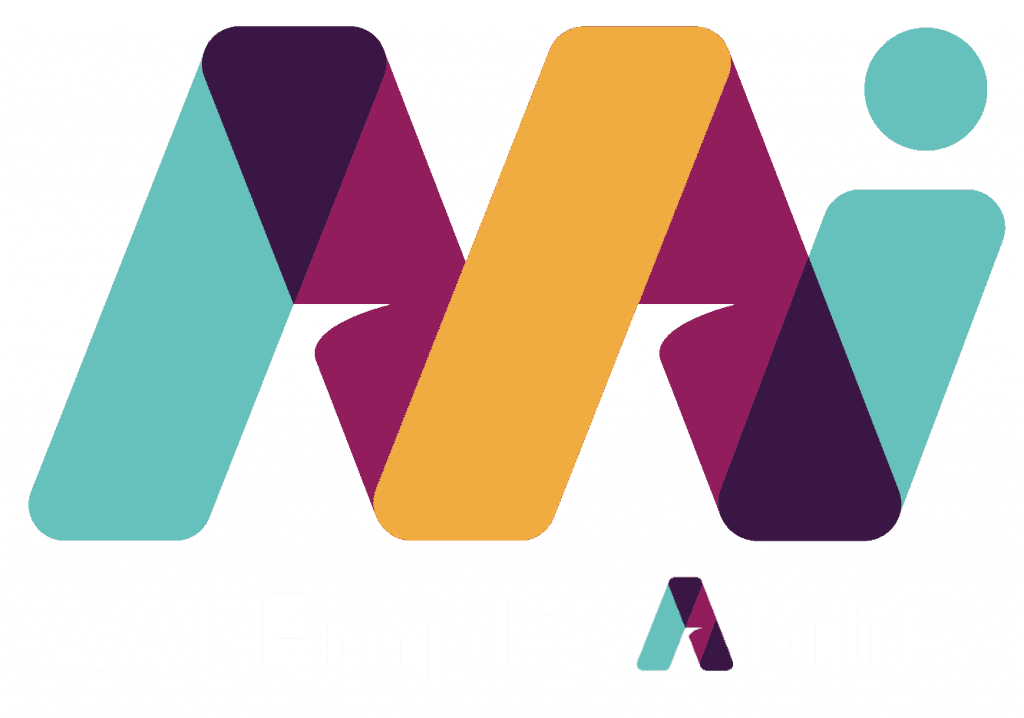Interview with AAI CEO Joy Lewis
First published 21.7.17 in Daily Business.
Making disability count
There have been some positive developments on the jobs front with unemployment falling and more people now in work. That’s the good news. For one group trying to get on the ladder there are continuing frustrations, obstacles and, it has to be said, prejudice.
Anyone with a disability still faces a tough task even getting an interview, let alone a job. Disabled people are more than twice as likely to be unemployed as those without a disability, according to a Labour Force survey published last year.
Joy Lewis, who sources graduates from all backgrounds to place with businesses, has seen this first hand and she wants to do something about it.
“I have come across employers who will not take on disabled graduates because it is ‘too difficult’,” she says.
“I don’t want to tell a disabled graduate that this is why they didn’t get the job, or the employer that they are discriminating against people. But that’s what happens.”
Lewis is chief executive of Adopt An Intern, a not-for-profit company which she set up in 2010 while working with the Centre for Scottish Public Policy (CSPP), an independent think-tank.
It was taking on unpaid graduates who were desperate for work but it felt bad about this and so it wanted to do something.
“They didn’t know how to go about it, but I knew I wanted to do it and it all went from there,” she says.
She managed to eke out some funding from the government and seven years later the scheme has placed 1,370 graduates into internships. It boasts a 98% placement success rate while 65% of interns are offered full-time jobs by the companies that take them on.
For the disabled group, however, the experience is somewhat less comforting.
“We estimate that 10% of graduates have some form of disability,” says Lewis, “but only 3% admit to to it. It’s a minefield for them.”
She tells of a meeting with disabled graduates at the Scottish parliament and how they told her they needed more help.
“I thought they enjoyed being treated like everyone else. But they told me there were so many barriers. They said ’employers see us and hear us but they are scared of us’. They made it clear they need extra help.”
Then came some good news from London when one of the employers who had been impressed by a couple of Adopt an Intern graduates offered £10,000 for Lewis to spend on a project of her choosing. She leapt at the opportunity to recruit a disabled graduate to work on some research into the subject.
AAI, as the company is now known, was “overwhelmed” with applications and Edinburgh graduate Ellen Mears got the role. The cash from Dr Mark Townley, who runs project management consultancy EVMT ProgRess, is also being used to fund another three-month internship for a disabled graduate.
Lewis is now hoping this will open a few more doors and that other employers will follow suit with similar sponsorships to help find internships for disabled graduates either in their own business or with a small firm that cannot afford to employ someone.
She hopes it will appeal to companies looking for projects as part of their corporate social responsibility programmes.
“Fundamentally, employers need to realise that there is nothing to be scared about taking on disabled people. They have the same talents and skills as other graduates. They are great ‘people people’ and want to work.”
She points out that there are government support packages to encourage employers to take on a disabled person, but many don’t know about them.
“For the government this is a big issue and they are more than willing to help. But many employers are in the dark.”
Lewis’s own progress was recognised in the 2015 Scottish Business Awards and she says it has been a big help in establishing the business’s credentials.
“Some of the interns who are now in work are recommending us to the next group of graduates and to their employers. That’s great.”
She is now working towards it becoming entirely self-funded when the government funding support runs out this year.

